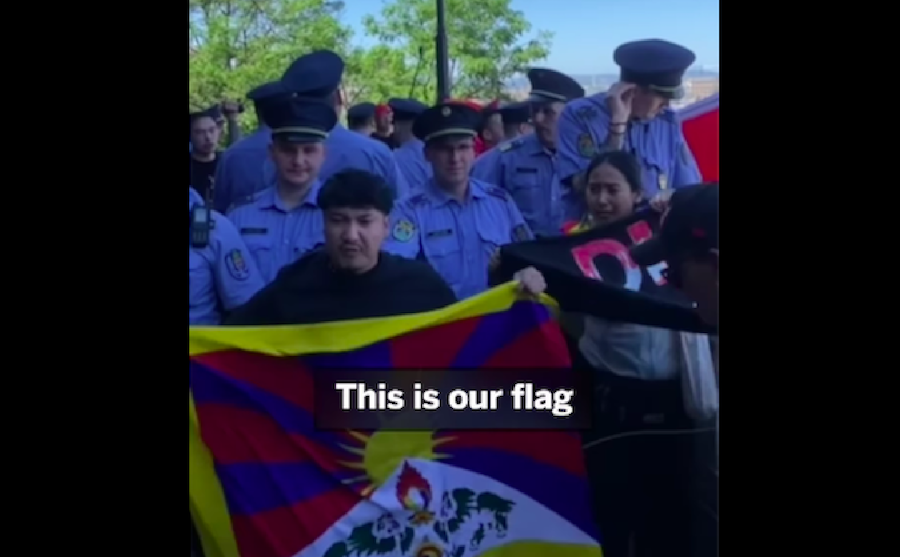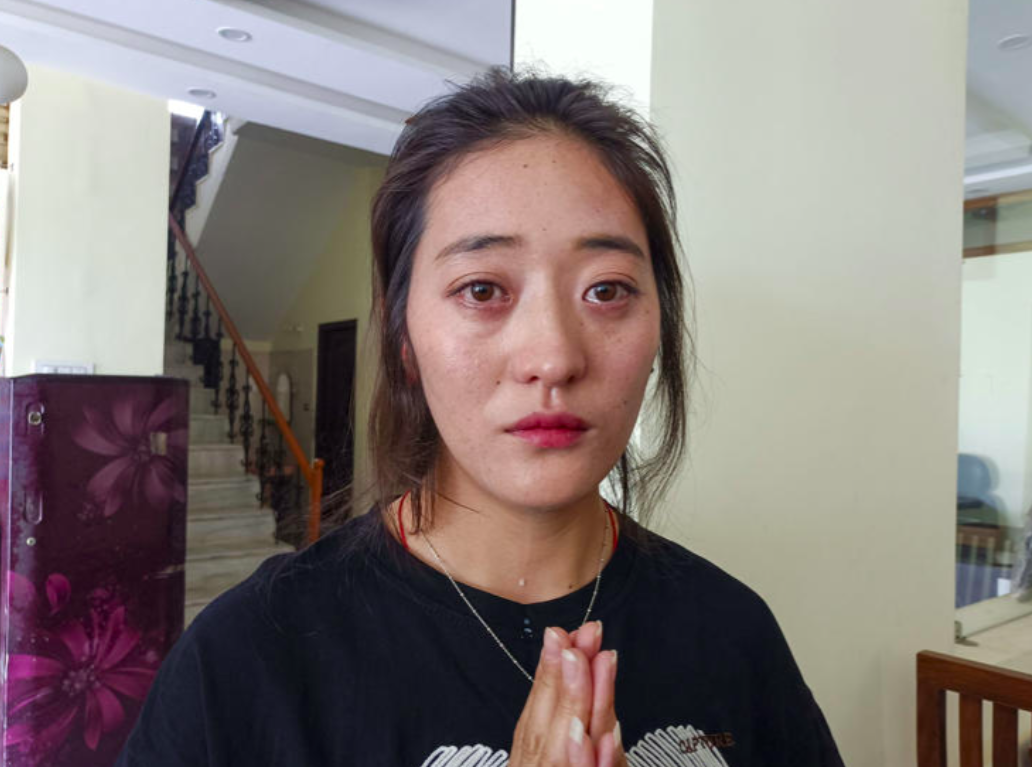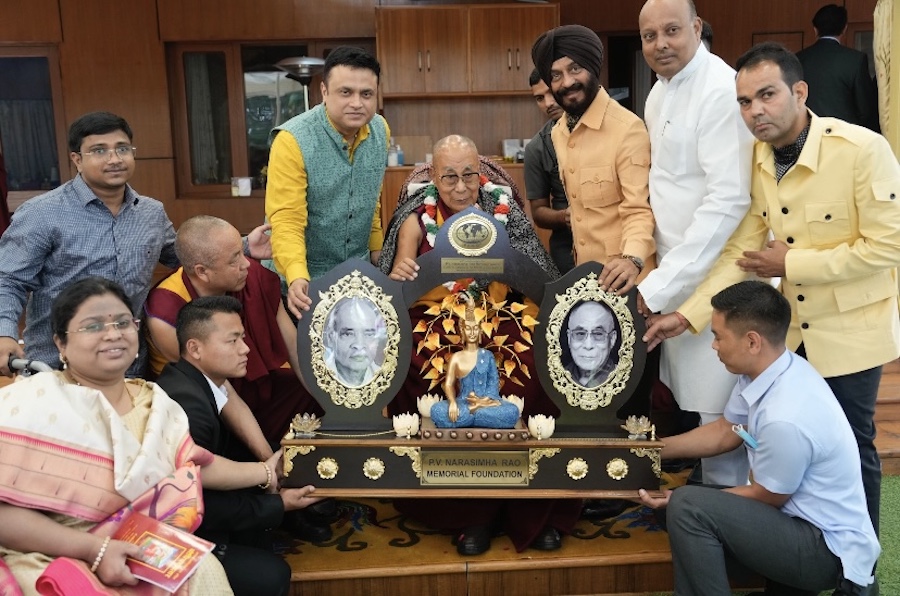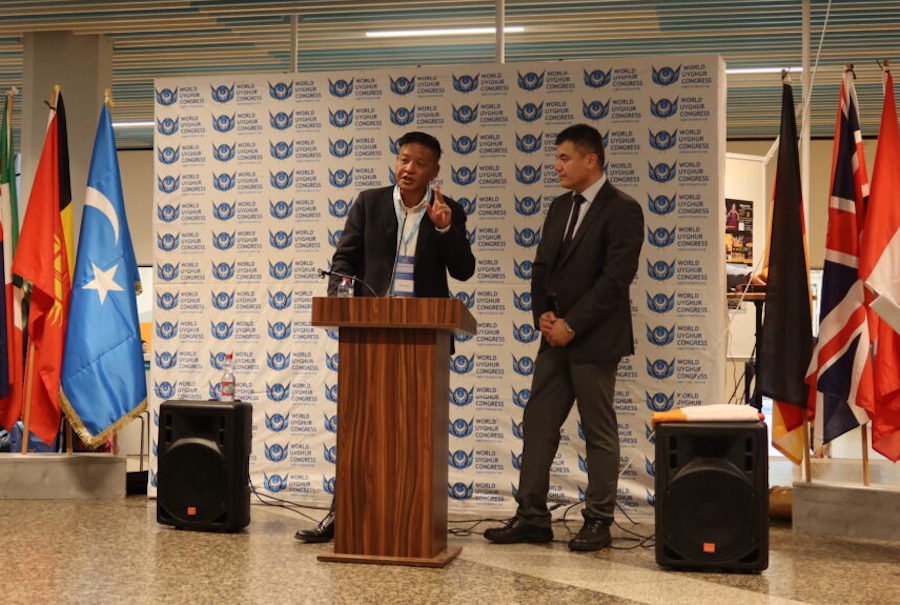Two of Tibet’s longest serving political prisoners have received sentence reductions from the Chinese authorities. Both are monks of Drepung Monastery in Lhasa. Jamphel Jangchub (lay name Yugyal) received a three year reduction of his 19 year sentence, making his scheduled release date 7 April 2005. Ngawang Oezer (lay name Jamyang) received a two year reduction of his 17 year sentence and is due for release on 18 April 2004. Chinese officials provided the information to the San Francisco-based Dui Hua Foundation, according to the group’s director, John Kamm. Both monks are held in the Tibet Autonomous Region (TAR) No.1 Prison in Lhasa, better known as Drapchi.
The two were part of the “Group of Ten”, an alliance of Drepung monks formed in 1988. They used carved wooden blocks to print copies of teachings by the Dalai Lama, a constitution proposed for a future, democratic Tibet, and the United Nations Universal Declaration of Human Rights. In April 1989, a month after martial law had been imposed in Lhasa, police detained five monks they suspected of being the group’s organisers, including Jamphel Jangchub and Ngawang Oezer. The rest were detained in July 1989. A closed trial took place on 30 November 1989 and sentencing followed a few days later in a sports facility before an audience of about 1,000. The five leaders received sentences of 17-19 years; the other sentences ranged from five to nine years. A Xinhua article released the same month as the sentencing accused the men of establishing a “counterrevolutionary clique,” “spreading counterrevolutionary propaganda,” “inflammatory agitation,” and “seriously undermining national security.” Currently Jamphel Jangchub is believed to be 47 years of age and Ngawang Oezer to be 39.
In addition to Jamphel Jangchub and Ngawang Oezer, monks Ngawang Phuljung and Ngawang Gyaltsen are still serving sentences of 19 and 17 years respectively. Five others are either confirmed or presumed to have completed their sentences (Jampal Losel, Ngawang Rinchen, Ngawang Kunga, Jampal Tsering and Jampal Monlam). Jamphel Khedrub, who was serving a 19 year sentence, died in the prison clinic in July 1996. Prison staff had summoned him to a routine evaluation of his progress in thought reform. He was tortured and died the following day.
All ten of the monks had taken part in a demonstration in Lhasa on 27 September 1987, which marked the beginning of the current era of Tibetan political protest. Twenty-one Drepung monks marched in support of remarks the Dalai Lama had made a few days earlier in Washington D.C., where he set out his Five-Point Peace Plan to a congressional sub-committee. In a sign that the authorities may not have considered the incident to be serious, the monks served administrative sentences of several months and were released.
Sentence reductions for good behaviour are the norm for prisoners in China but political prisoners are treated more harshly and infrequently receive reductions. According to TIN’s political prisoner database, only eight Tibetan political prisoners held at Drapchi after 1987 are known to have received a sentence reduction. In contrast, sentence extensions for Drapchi’s political prisoners have been commonplace. TIN records show that nearly 60 Drapchi prisoners are confirmed or believed to have received a sentence extension for political activity carried out inside the prison. Nearly 20 of them remain imprisoned. None of the “Group of Ten” are known to have received a sentence extension.
Representatives of numerous governments, including those of the United States and Great Britain, have raised the cases of Jamphel Jangchub and Ngawang Oezer at meetings with Chinese counterparts since the early 1990s. Human rights groups have documented and called attention to their cases throughout their period of imprisonment. The sentence reductions will be welcomed by those who have worked on the monks’ behalf. In a recent and more widely known development, Buddhist nun Ngawang Sangdrol received an 18-month sentence reduction in October 2001. She was released a year later on parole for good behaviour, nine years before her scheduled release date. Chinese authorities allowed her to travel to the U.S. to seek medical care in March 2003. Phuntsog Nyidrol, currently the longest-serving Tibetan female political prisoner, received a one year reduction of her 17 year sentence in 2001. Like Jamphel Jangchub and Ngawang Oezer, the nuns have been the focus of persistent requests for information, and expressions of concern, by representatives of governments and advocacy groups.









